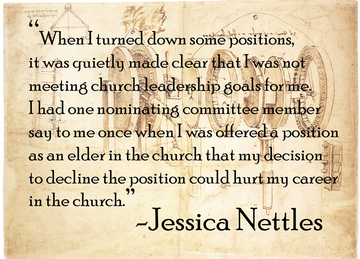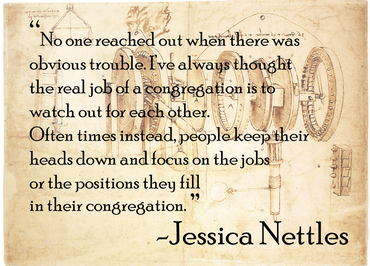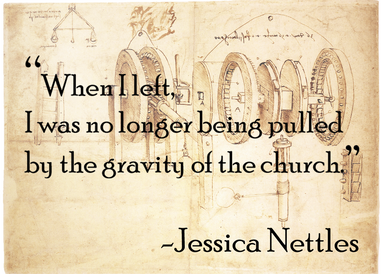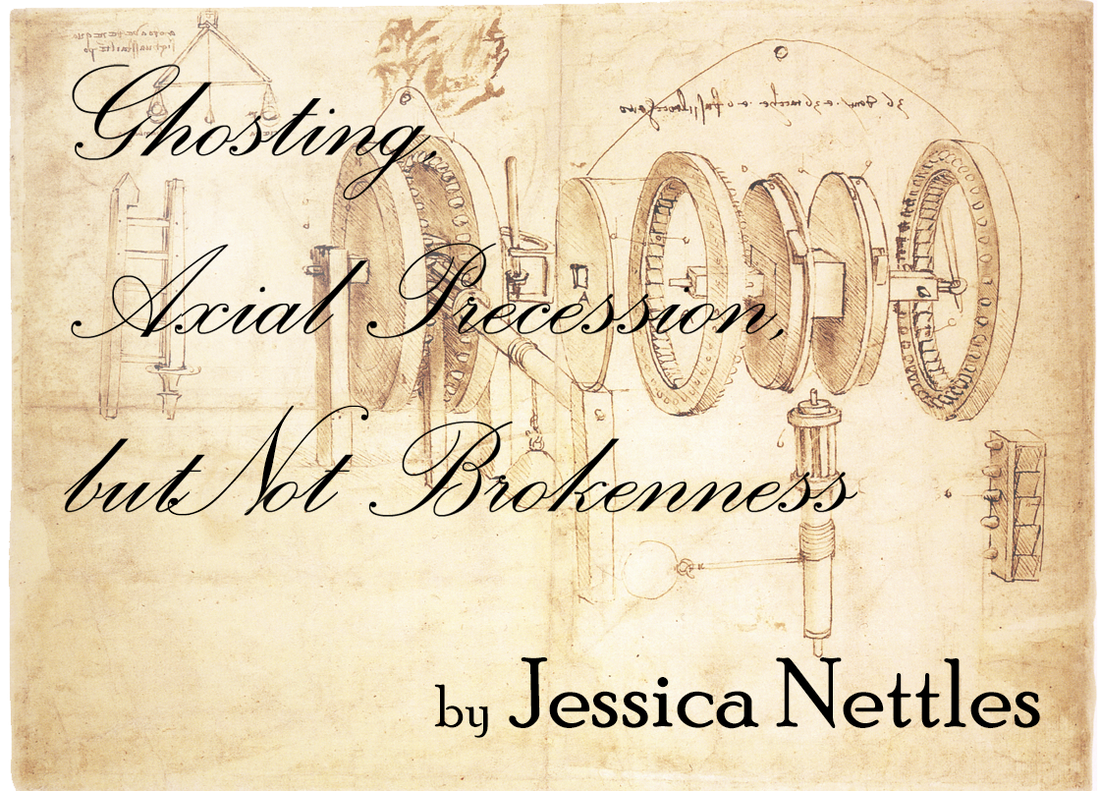|
-Jessica Nettles- Pastor Melissa and I were chatting a few days ago about how the church treats those who it has “broken.” She’d asked me to write this piece, and I wasn’t sure how to proceed. She said something that struck me—“Right now, there is a ghosting of those who are broken by the church.” My first thought was that it wasn’t just right now. This has been happening for decades. Ghosting is a term that means “breaking off a relationship by stopping all communication and contact with the partner without any apparent warning or justification, as well as ignoring the partner’s attempts to reach out or communicate” (Wikipedia). What’s sad is that this sort of activity is built into the culture of many churches and the members accept that this is how things work in a church community. I’ve heard members say, “Well, they decided to leave.” While this may be true, if the church is the family it claims to be, then the church should be willing to face problems and deal with them honestly rather than placing blame, ignoring those sharing concerns, or using people until they have nothing left to give the church. It should also be willing to reach out to the person and find out why the person felt they had to leave the community. The point of Christianity is to honor God and take care of one another (this can mean inside the church and in the community). Many churches have devolved into organizational care taking i.e. what can our membership do to keep us going? How can we grow our membership to keep us going? This means that membership becomes a tool rather than a community or family. It can wear the mask of family and community, but underneath that smiling mask is something that is disturbing. I have watched and experienced the ghosting that stems from this attitude for years.  Before I tell you about my departure from church, I need to make something abundantly clear. The church did not break me. It failed me by using me till I was exhausted and had enough. I believe service to others is part of the Christian lifestyle. It is the best way to honor God. When an organization uses that belief in service to simply grow itself and raise funds to help itself without reaching out to others outside the church or to care for the wounded inside the church, that’s not Christian service to others. There is a saying that the church eats its own. I have seen this in action and the “eating” comes in many varieties. About nine years ago, I left a congregation I’d participated in for twenty years. Participation means I held positions in the church, worked on church things after I got off my real job, pulled my kids around as I did those jobs because that’s what I saw as service (I often couldn’t tithe monetarily and instead would do a time tithe, so my service was a tithe). Sabbath was not a rest day for me. I’d hit the ground running on Sunday mornings. This meant getting the kids together, driving to church, and working at various jobs before, during, and after services. This also meant extra time after services attending meetings and going places. There was no rest, and Sundays were driven by stress and anxiety a lot of times. I wanted to do other things, sometimes with my kids, but I had obligations. I even worked at home for the church. It was like having another job. When I turned down some positions, it was quietly made clear that I was not meeting church leadership goals for me. I had one nominating committee member say to me once when I was offered a position as an elder in the church that my decision to decline the position could hurt my career in the church. When I burned out (which was inevitable), there was nothing offered in the way of help or comfort. Instead of asking why or understanding my exhaustion, the response was “we need your wisdom and skills for this or that,” or “how will we do this without you?” or “there are so few of us working now.” Saying no was hard because it felt like I was saying no to God herself. I knew She understood when I said no, but I also knew that the church measured my worth to the community by how much I contributed in time. In the six months to a year before I walked away never to return, the congregation was more concerned with keeping the doors open than taking care of their own or the community. Now, to be fair, I understand how hard it is to make sure that a church pays its bills and is able to fund what it does. While a congregation pays attention to those matters, it would seem that someone would make a connection between that lack of funding and the on-going interpersonal problems that have led to this lack of funds.  Often, no one would have any idea why a person left the congregation. In one instance, an entire family that served on our board and were elders and deacons left the church. They’d raised a few generations of kids there. When they left, no one went after them, and when I asked what had happened, the leaving was blamed on them (later I discovered that the departure was, in part, because no one wanted to listen to them when they advised against a major step the church board decided to make even though the advice was sound). There were even times when people were going through major family issues and no one would reach out or know what was going on until the troubles were over. In my own case, the church had no idea that my ex and I were having marital problems even though we argued and barbed each other for an entire year or so in Sunday school. My ex was a minister (we left the United Methodist Church after serving as a pastoral family for seven years) and very charming. People thought we were the “it couple” in the church (probably because of our provenance). When I announced that we were splitting, people were shocked. They had no idea. In fairness, there were members who immediately supported and surrounded me and the kids once they did know, but the fact that no one saw that there were deep problems with our relationship was strange to me. For a long time, I told myself that it was because we’d managed to build good masks and were able to pretend that we were okay. I certainly didn’t go to anyone and say, “My husband is emotionally abusing me.” Still, there were signs, and no one pulled me aside and said a thing. They pulled me aside when I was pregnant with my son and asked, “Are you pregnant?” but they didn’t seem to see when I’d come to church with puffy eyes from crying in the car or notice when I got more quiet than normal. I observed this kind of behavior over and over again with various people and situations. No one reached out when there was obvious trouble. I’ve always thought the real job of a congregation is to watch out for each other. Often times instead, people keep their heads down and focus on the jobs or the positions they fill in their congregation. Before I left, the congregation’s problems were growing. They couldn’t let go of a former pastor. They hired two pastors in a row who were toxic. The entire youth department left the congregation because they felt that the adults who they trusted wouldn’t support them when they brought their concerns about the pastor to the congregation. An entire youth department was ghosted because no one wanted to admit that a pastor was toxic. Instead of focusing on the issues that were causing the problems, the board would cycle. There’d be a committee formed and then a big kickoff party where the renewed mission statement would be revealed. Then there would be a series of sermons meant to light the congregation’s fire to work again. The same people (unless they’d left), would pick up the work even without real money to do so. The people who made a stink would either leave or be ghosted until next time around. Same song, different verse, same results. My decision to leave wasn’t a sudden decision. I began my leaving at the point where I sat in services and couldn’t see God for all the stuff cluttering my worship space. I don’t just mean the giant screens, meaningless worship chants, and the sermons with little to no value because those who delivered them were toxic. The burn-out and ghosting also clouded my view of God. Sitting in services became unbearable for me. When my kids said they couldn’t go back, I understood. I resigned from my jobs in an attempt to find peace. Then I found that I wanted to spend that time with my kids who were on the verge of leaving the nest. I left and tested a theory. After three weeks, no one from the church contacted me. After three months, still nothing. I had been on the board for years in some capacity. I’d been a deacon for years. I headed education for a while and even wrote for the church’s website and Facebook page. My children grew up in that congregation. No one came for me or my children. This hurt a lot, but it also solidified my theory that my work was valued more than my family or myself in that community.  Once again, after all of this, I don’t consider myself broken. The church burned me out, but I didn’t break. I shifted. When I began thinking about this piece, this was the first thing that hit me. This led me to thinking about how planets rotate on their axels. For the record, I’m not an astrophysicist. I’m a fiction writer. Still, I am fascinated by space and how things in the universe work. All planets rotate around their sun (or suns…yes, there are really planets with two suns), but they also spin on a magnetic axis. This is why we have seasons, and why we have sunrise and sunset. What’s even more cool is that the axis itself spins as well. This spin is influenced by the gravitational pull of the sun and moon in the case of Earth. Astronomers talk about this using the term “axial precession.” Axial precession is “a gravity-induced, slow, and continuous change in the orientation of an astronomical body's rotational axis.” Focus on the “slow and continuous change in…orientation” bit. During my time in the church, even when I was ghosted, I wasn’t really broken. I was shifting. No one saw this shift but me and my closest friends (who, sadly, weren’t in the church). My rotational axis was changing. When I left, I was no longer being pulled by the gravity of the church. Some church folk would label this “backsliding” (my Baptist is showing here). To be clear, my love of God did not change in this shift. My desire to serve my community and take care of others did not shift. The only thing that shifted was my connection to the church. In my axial precession I found something I’d not found in a very long time in my life—freedom. I’ve learned to choose my obligations and not be afraid to say no if I cannot, even if that “cannot” equals “I don’t have the personal energy for that obligation right now.” I’ve found connections with people who respect, listen, and come after me if there is a problem. I’ve found church in other spaces and with people who I love. It’s too bad that the place and people who call themselves church often do none of these things for their members. There is a huge discussion right now in many denominations about what is killing their churches. The answer staring them in the face, but I’m not sure anyone will look to see the truth. It means that they have to do something different than they do now. I don’t think they are ready for that. |
Categories
All
Archives
October 2023
|




 RSS Feed
RSS Feed